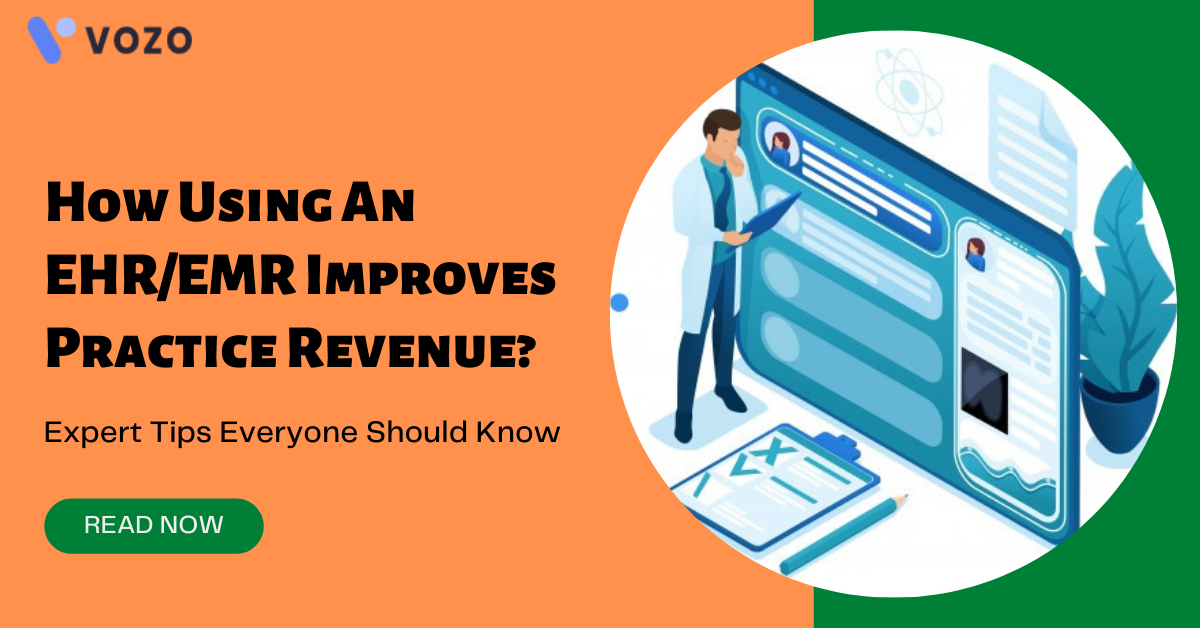How Using An EHR/EMR Improves Practice Revenue?
The success of your healthcare organization is often tied to increasing practice revenue and here is where the adoption of EMR/EHR plays as a game-changer.
A good EHR software should help in increasing practice revenue, decreasing costs or overheads, improving patient care, or any combination of the above resulting in maximization of reimbursements, collections, and customer satisfaction. In this article, we discussed some of the incredible tips on how using an EHR/EMR improves practice revenue.
Improves Capturing Of Charges
Medical billing is one of the important processes which plays a great role in increasing practice productivity. During the process of medical billing, the errors committed by the billing staff often result in lower billing, and a great revenue loss for the clinic or healthcare provider. So how the billing process can be done smoothly? What makes it better to increase the practice revenue? The Electronic Medical Records (EMR) is designed for easy capture of all the charges connected to services and so the healthcare providers can earn more even when patient numbers remain the same.
RELATED: CHECKLIST TO FIND THE BEST EHR SOFTWARE
Maximizes Billing
Reluctant to face an audit, healthcare providers regularly employ billing codes that are lower than what is normal for service. This practice by physicians to avoid audits by authorities often results in revenue of up to $40,000 being lost annually. Down coding can be easily avoided by using E&M billing codes that are recommended for services by the EMR software, which also results in reducing chances of audits.
Improves Physician Productivity
Using EMR/EHR within a clinic reduces the paper-based documentation works and allows for smooth communication between physicians and staff, this ultimately decreases the time spent on creating paper-based medical records for each patient. With EHR software progress notes can be automatically crafted, and they can be reviewed from home or within the office allowing physicians to see more patients during the day.
RELATED: BENEFITS OF EHR SOFTWARE
Minimum Claim Denials
Denied claims in medical practices often amount to 14% of the total claim submitted. How to overcome claim denials? The best solution is to make use of the right EHR software for accurate coding which helps overcome this particular problem. A study reveals that the use of EMR/EHR prevents 90% of claim denials. Using an EHR allows physicians to document every aspect of a patient visit, and therefore increase the amount of claim revenue they’re eligible for.
READ MORE: 5 STEPS FOR MEDICAL CLAIM BILLING SUCCESS
EHRs Improve Efficiency
EHRs can also improve profitability by saving a lot of physicians valuable time at each patient visit. The EHR feature which improves efficiency includes:
- Pre-Filed Templates: These templates let you document common patients complaints more quickly and easily than paper-based documentation
- Prescription: When compared with the traditional process, in EHR, the prescription goes directly to the pharmacy before you’ve even left the patient.
READ MORE: A GUIDE TO CUSTOMIZATION EHR TEMPLATES
Optimizes Reimbursement Process
EHR software allows physicians to produce adequate supporting documentation that complies with CMS guidelines and supports the appropriate level of service to be billed. Accurate coding speeds up the reimbursement process and results in fewer rejected claims from insurance companies. Even better, EHR Software helps produce clean claims the first time, significantly reducing the number of rejected claims!
Final Thoughts
These five amazing tips help to make the right usage of EHR to increase your practice revenue. Consider these ways to maximize your ROI and improving patient care along the way. With years of experience in the field of healthcare, Vozo offers the best EHR software for your healthcare practice which helps you to achieve maximum revenue with the shortest possible time in a cost-effective manner.
About the author

With more than 4 years of experience in the dynamic healthcare technology landscape, Sid specializes in crafting compelling content on topics including EHR/EMR, patient portals, healthcare automation, remote patient monitoring, and health information exchange.
His expertise lies in translating cutting-edge innovations and intricate topics into engaging narratives that resonate with diverse audiences.














